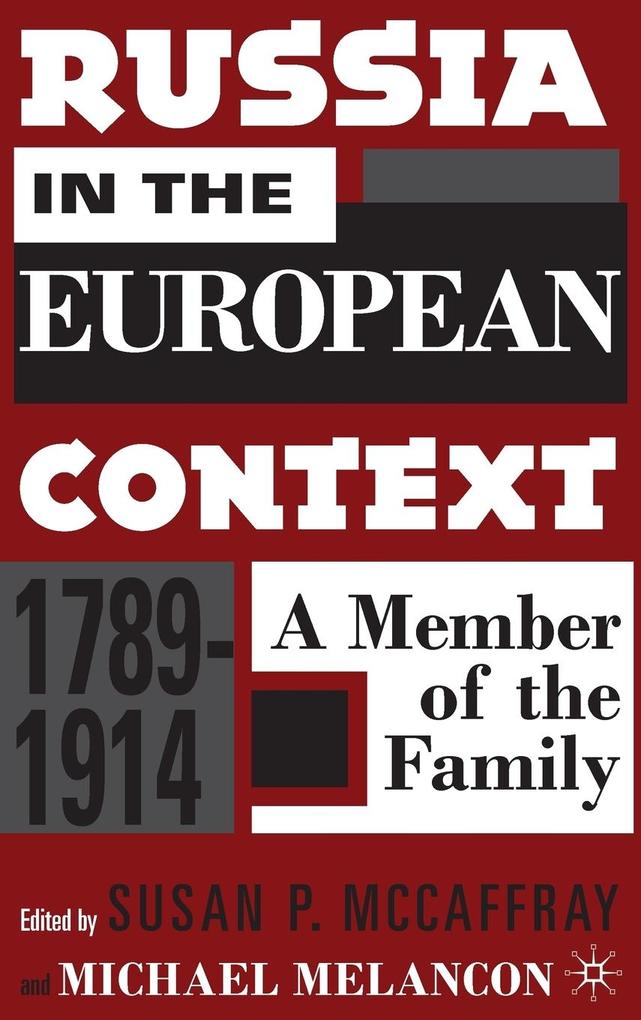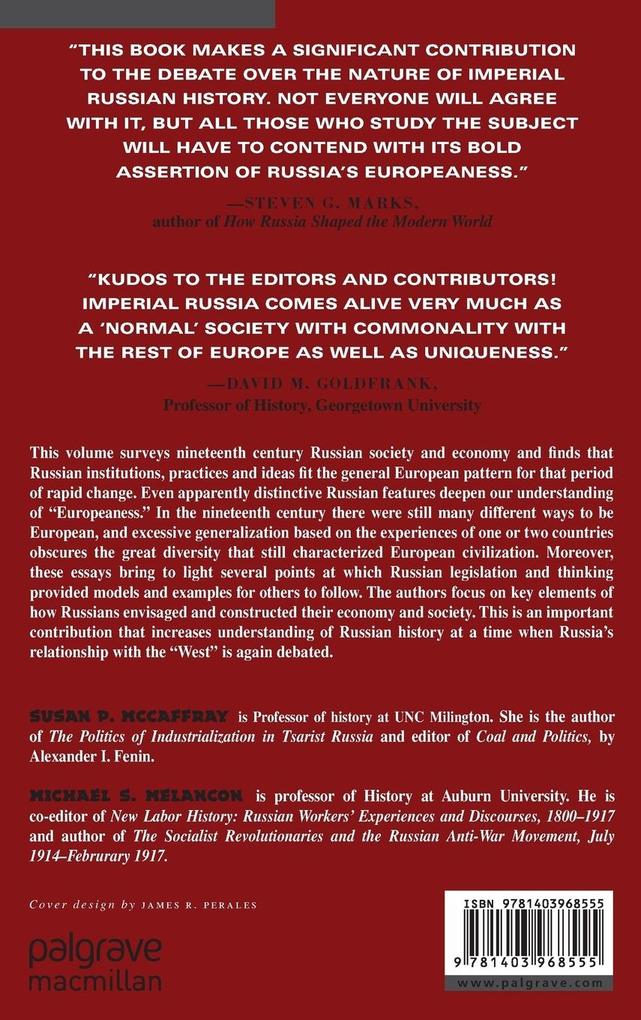
Zustellung: Mo, 28.07. - Fr, 01.08.
Versand in 2 Wochen
VersandkostenfreiThis volume surveys Nineteenth-century Russian society and economy and finds that Russian institutions, practices and ideas fit the general European pattern for that period of rapid change. Even apparently distinctive Russian features deepen our understanding of 'Europeaness'. In the Nineteenth-century there were still many different ways to be European, and excessive generalization based on the experiences of one or two countries obscures the great diversity that still characterized European civilization. Moreover, these essays bring to light several points at which Russian legislation and thinking provided models and examples for others to follow. The authors focus on key elements of how Russians envisaged and constructed their economy and society. This is an important contribution that increases understanding of Russian history at a time when Russia's relationship with the 'West' is again debated.
Inhaltsverzeichnis
Envisioning an Economy The Ties that Bind: The Role of the Russian Clan in Inheritance and Property Law; L. Farrow Capital, Industriousness and Private Banks in the Economic Imagination of a Nineteenth-Century Statesman; S. McCaffray Towards a Comprehensive Law: Tsarist Factory Labor Legislation in European Context, 1830-1914; B. Gorshkov Rereading Old Texts: Sergei Witte and the Industrialization of Russia; F. Wcislo Religious and Nationalist Aspects of Entrepreneurialism in Russia; B. V. Ananich Envisioning a Society The Role of "Europe" in Russian Nationalism: Reinterpreting the Relationship between Russia and the West in Slavophile Thought; S. Rabow-Edling Data-Gathering as a Subversive Activity: Politics, Social Science and Statistics; E. Kingston-Mann A Temple of Idleness? Clubs, Associations and the Public Sphere in Imperial Russia; L. Haefner Russian Punishments in the European Mirror; J. Daly Society's Views on Politics, Rights, and Labor, 1910-1914: What the Russian Press Tells Us; M. Melancon St. Petersburg Workers and Implementation of the Social Insurance Law of 1912; A. Pate
Produktdetails
Erscheinungsdatum
15. Juni 2005
Sprache
englisch
Auflage
2005 edition
Seitenanzahl
238
Herausgegeben von
S. McCaffray, M. Melancon, Susan McCaffray
Verlag/Hersteller
Produktart
gebunden
Abbildungen
X, 238 p.
Gewicht
499 g
Größe (L/B/H)
243/161/19 mm
ISBN
9781403968555
Entdecken Sie mehr
Pressestimmen
" This book makes a significant contribution to the debate over the nature of Imperial Russian history. Not everyone will agree with it, but all those who study the subject will have to contend with its bold assertion of Russia' s Europeanness. "
- Steven G. Marks, author of How Russia Shaped the Modern World
" Kudos to the editors and contributors! Imperial Russia comes alive very much as a ' normal' society with commonality with the rest of Europe as well as uniqueness. "
- David M. Goldfrank, Georgetown University
Bewertungen
0 Bewertungen
Es wurden noch keine Bewertungen abgegeben. Schreiben Sie die erste Bewertung zu "Russia in the European Context, 1789-1914" und helfen Sie damit anderen bei der Kaufentscheidung.









